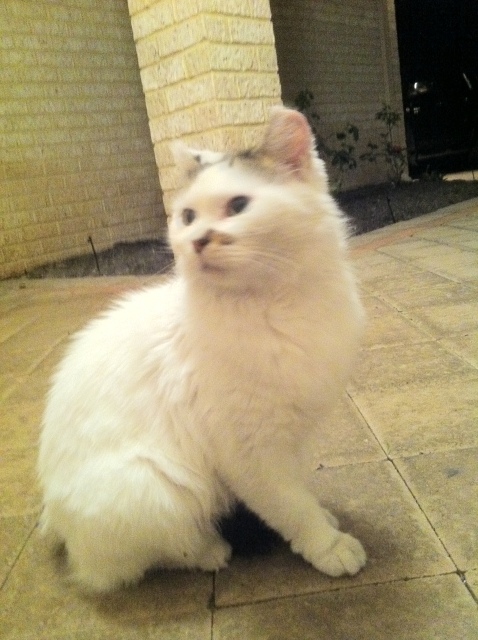QuestionI've recently relocated an outside cat that grew up with minimal human contact and is only friendly towards me. We are currently keeping him on our screened-in back porch with the few posessions I had for him. He is refusing to eat, drink, or use the litterbox(he is not litter box trained but the problem is he has not gone at all). We also have two dogs and another cat living in the house. It has only been one day since relocation and I understand these things take time, but is there any way we can comfort him or help him understand that this is a safe environment?
Thanks so much!
AnswerAdrienne,
I've used a homeopathic remedy called Bach's Rescue Remedy which is a blend of flower essences designed to calm and reassure. This remedy can be purchased at naturopathic pharmacies, health food stores, some mainstream pharmacies carry Rescue Remedy in the aisle with vitamins and other nutritional supplements and I believe that this remedy can also be purchased online. I think that it would be wise to have the cat checked over by a veterinarian just to make sure that there aren't any health issues that may account for his behavior. In terms of making the litter pan more familiar to the cat you can use some dirt from outside to fill the litter box - that sometimes helps when a cat is accustomed to using the toilet outside. I'm quite worried about the fact that this cat isn't drinking, dehydration can happen quite quickly and result in serious health problems so if the cat doesn't start drinking water on his own soon you will need to have him assessed and possibly rehydrated by the vet. I would recommend that you try feeding this kitty some canned tuna packed in water, don't drain the water from the can - maybe your kitty will be tempted into eating and getting some fluids on board. A holistic vet might be useful in this case - these vets are trained in conventional medicine as well as one or more alternative therapies possibly including acupuncture, homeopathy, Reiki, or even massage to name a few. It's possible that this cat's answers lie with alternative medicine and I feel confident recommending these options - my family vet is a holistic vet who uses homeopathy in her practice and I've seen some amazing results when my cats have been treated with the appropriate remedies sometimes in conjunction with conventional treatments.

 stuffy nose on my persian
QuestionTiffany
QUESTION: My cat Tiffany is 12 y
stuffy nose on my persian
QuestionTiffany
QUESTION: My cat Tiffany is 12 y
 Please help
Questionmy cat
QUESTION: Hi,
I have a Ragdoll ca
Please help
Questionmy cat
QUESTION: Hi,
I have a Ragdoll ca
 what breed is my bobtail kitten?
Question
Midnight
About a month ago I got a little bobt
what breed is my bobtail kitten?
Question
Midnight
About a month ago I got a little bobt
 Pregnant cat and her to be kittens.
Question
Scarlett
Recently (May 2011) we adopted a stra
Pregnant cat and her to be kittens.
Question
Scarlett
Recently (May 2011) we adopted a stra
 What breed is my cat?
QuestionBoots
QUESTION: Hi Norman, i was hoping
What breed is my cat?
QuestionBoots
QUESTION: Hi Norman, i was hoping